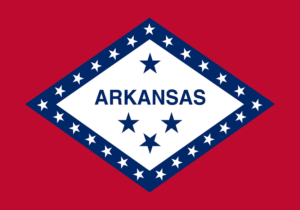Ark. R. Civ. P. 34
Reporter’s Notes to Rule 34:
1. Rule 34 is identical to FRCP 34. Prior Arkansas law was governed by superseded Ark. Stat. Ann. 28-356 (Repl. 1962) which tracked FRCP 34 prior to the 1970 amendments thereto. Under prior Arkansas law, a party seeking the production of documents, etc., was required to show good cause and obtain a court order to permit same. Under this and FRCP 34, the party seeking discovery need only serve a request upon opposing counsel. Should the opposition refuse to produce the document or thing requested, the party seeking discovery must move for an order compelling the production of the item. Thus, unless documents are produced by agreement, a hearing is still required.
2. Rule 34 and FRCP 34 omit any reference to privileged matter. Although this particular rule does not specifically preclude the production and inspecting of privileged matters, Rule 26(b)(1) makes it quite clear that matters which are deemed privileged are beyond the scope of discovery.
Addition to Reporter’s Notes, 1997 Amendment: The first and second sentences of the second paragraph of Rule 34(b) have been amended to track Rule 33(b)(3). In accordance with the prior version of Rule 34(b), the court may shorten or lengthen the time for responding to requests for production. New language expressly permits the parties to extend or shorten the response time by written agreement, a modification in discovery procedures that is permissible under Rule 29.
Addition to Reporter’s Notes, 1999 Amendment: The first and second paragraphs of subdivision (b) have been numbered and a new paragraph (3) added. The fourth sentence of the second paragraph has been amended to require a party who objects to part of a request for production to permit inspection with respect to the unobjectionable portions. The corresponding federal rule was so amended in 1993. A similar requirement for answers to interrogatories appears in Rule 33(b)(1).
The new third paragraph, based on Federal Rule 34(b), provides that a party from whom production is sought must (1) organize and label the documents in accordance with the categories set out in the production request, or (2) produce them as kept in the usual course of business. However, the second option is available only if “the party seeking discovery can locate and identify the relevant documents as readily as can the party who produces them.” This requirement is intended to eliminate a problem that has arisen under the federal rule, which appears to give the producing party the right to produce records as kept in the usual course of business even though the party seeking discovery would be forced to sift through a jumble of documents in order to find those that are responsive to the production request. A similar requirement has been added to Rule 33(d), which allows the production of business records in response to interrogatories.
Addition to Reporter’s Notes, 2010 Amendment: Subdivision (c) has been amended to reflect the 2010 amendment to Rule 45(b), which allows subpoenas for the production of books, papers, documents, or tangible things without a related appearance at a deposition, hearing, or trial.

